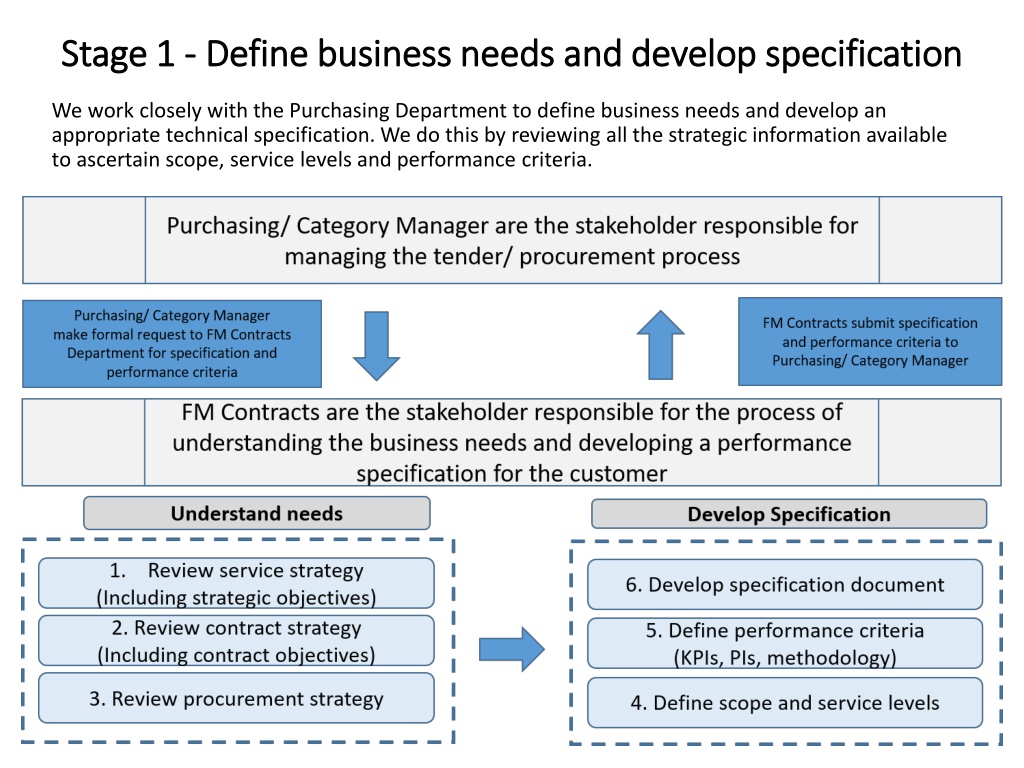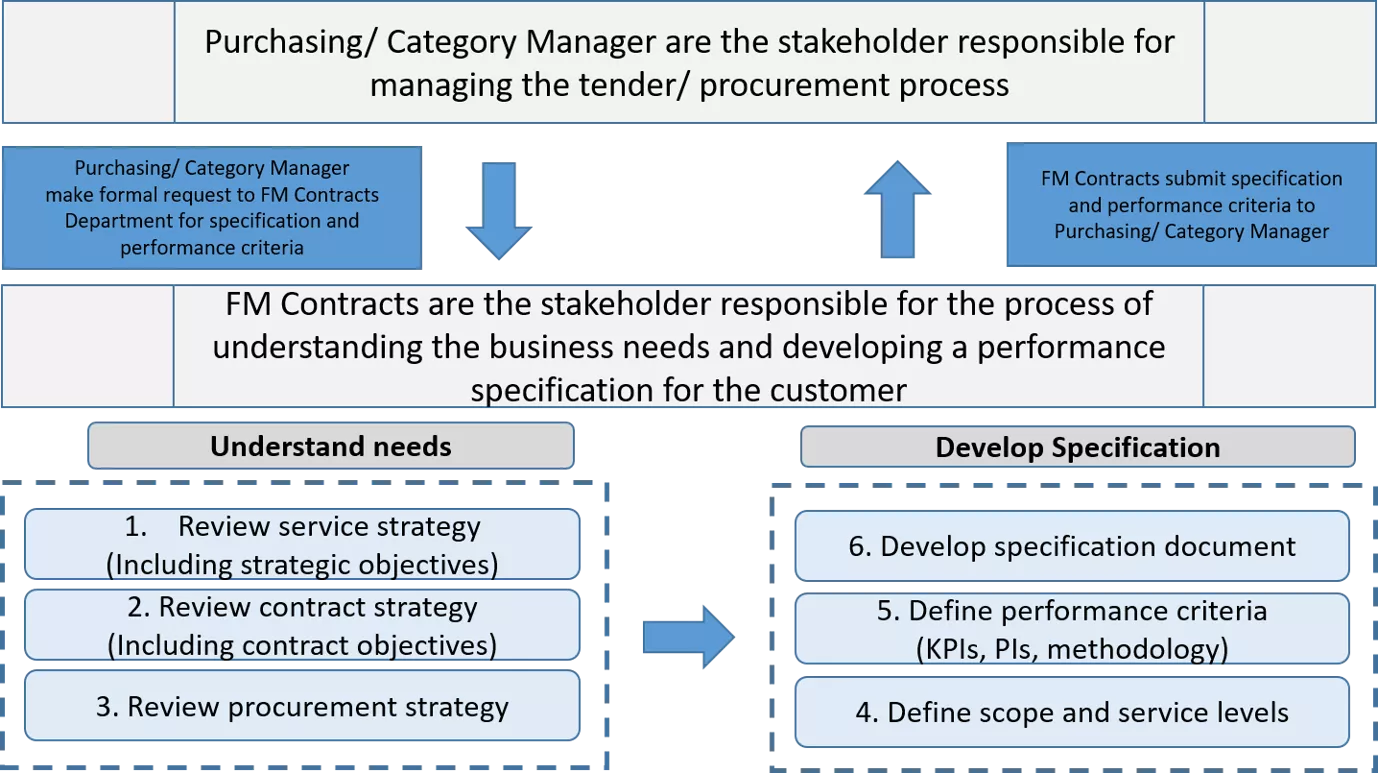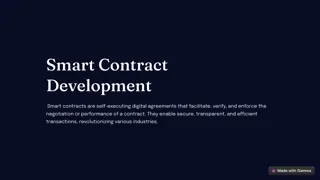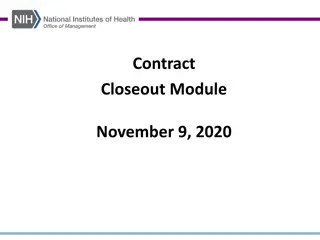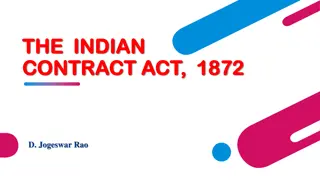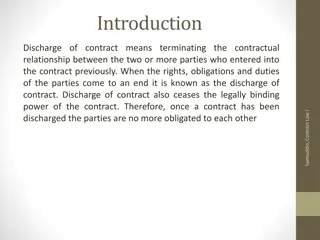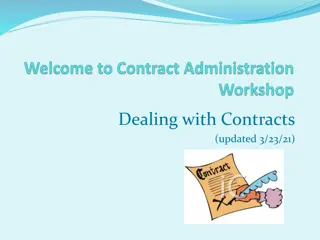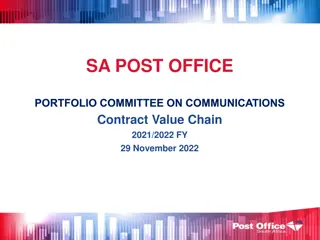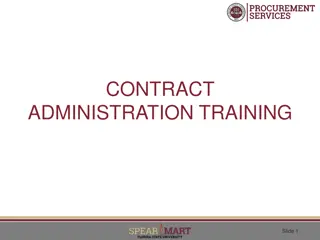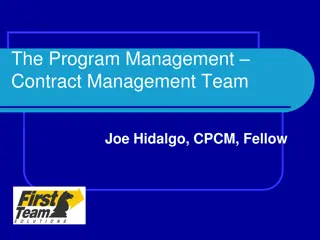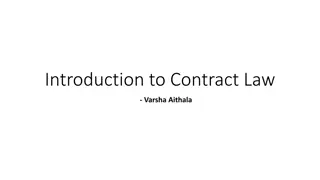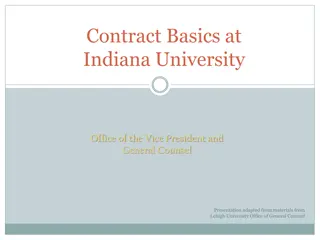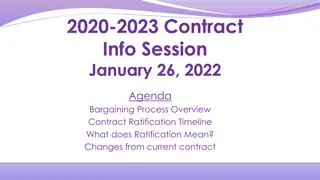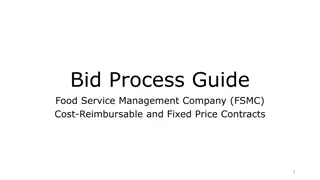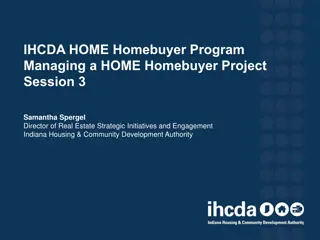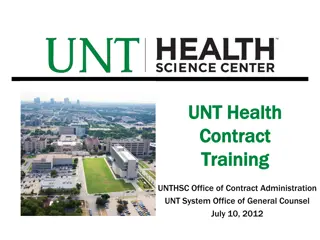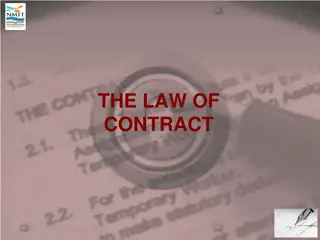Contract Management Process Overview
Detailed explanation of the six stages involved in contract management, from defining business needs and developing specifications to managing relationships, performance, and finances. Each stage plays a crucial role in ensuring successful contract execution and stakeholder satisfaction. Effective stakeholder management, clear communication, and continuous performance evaluation are highlighted as key components throughout the process.
Download Presentation

Please find below an Image/Link to download the presentation.
The content on the website is provided AS IS for your information and personal use only. It may not be sold, licensed, or shared on other websites without obtaining consent from the author. Download presentation by click this link. If you encounter any issues during the download, it is possible that the publisher has removed the file from their server.
E N D
Presentation Transcript
Stage 1 Stage 1 - - Define business needs and develop specification Define business needs and develop specification We work closely with the Purchasing Department to define business needs and develop an appropriate technical specification. We do this by reviewing all the strategic information available to ascertain scope, service levels and performance criteria.
Stage 2 Stage 2 - - Stakeholder Management Stakeholder Management The success of a contract is dependent on good stakeholder management. Having clarity about who does what in the management of a contract is important for communication at strategic, tactical and operational tiers of management. It is also a precursor to developing a good working relationship between stakeholders.
Stage 3 Stage 3 - - Contract Administration Contract Administration Once the Purchasing Department has completed the tender process, we start to prepare the resources, processes and procedures to manage the contract once operational. It is important the specification work completed in Stage 1 is reflected in the terms and conditions of the contract. The work in this stage may inform the way we want the contractor to work and it s therefore important to communication these requirements during the contract mobilisation and implementation phase.
Stage 4 Stage 4 Relationship Management Relationship Management Fundamental to a good relationship between stakeholders is the process of constantly reviewing the needs of stakeholders so that the contract can evolve over time to continually satisfy those needs. This stage relates to Oxford University stakeholders only and is not to be confused with supplier relationship management in stage 10.
Stage 5 Stage 5 Performance Management Performance Management Developing a suitable performance management regime to measure the key aspects of a contract is essential for stakeholders to understand how the contract is performing at any given point in time. This will help inform robust decision-making to change and evolve the contract and ensure the contract remains fit for purpose.
Stage 6 Stage 6 Finance Finance The financial management and associated processes and procedures will depend on the commercial dynamic of the contract. The process below is indicative only and is informed by robust internal pre- defined financial protocols for each contract.
Stage 7 Stage 7 Risk and Resilience Risk and Resilience Every contract has risk attached to it. The management and control of it is essential to the sustainability and success of the contract. Understanding risk informs decision-making and facilitates positive change and evolvement of the contract over time.
Stage 8 Stage 8 Contract Development Contract Development Contracts, particularly those long term (5 years or more), will need to evolve and develop over the term of the contract. This is inevitable to address the challenges of the day, whether they be internal in terms of stakeholder and business need, or external in terms of threats and legislative changes.
Stage 9 Stage 9 Supplier Development Supplier Development In the same way as the contract must develop in Stage 8, so too must the supplier by way of a process of continuous improvement. In the spirit of partnership and collaboration, our intent is to work closely with our suppliers to develop their capacity and capability to deliver a sustainable and successful contract.
Stage 10 Stage 10 Supplier Relationship Management Supplier Relationship Management In the same way we must manage internal stakeholder needs in Stage 4, we must also be receptive to the needs of the supplier as a valued external stakeholder. We must be sympathetic to the issues and challenges they may be facing and consider recommendations for contract improvement.
Stage 11 Stage 11 Exit and Termination Exit and Termination There are different reasons why a contract may be terminated; break clauses and poor performance are two examples. Whatever the reason it is essential that sufficient time and resources are assigned to the process. Demobilisation of the incumbent supplier and mobilisation of another poses various challenges and risk that must be carefully coordinated and managed.
Stage 12 Stage 12 Asset Management Asset Management At the end of a contract it is important to reconcile and account for assets owned by the University but previously managed by the supplier. The University will want to ensure its assets have been operated and maintained and any shortcomings in this regard recovered from the supplier. In the case of stock such as spare parts, an inventory and suitable storage should be available.
